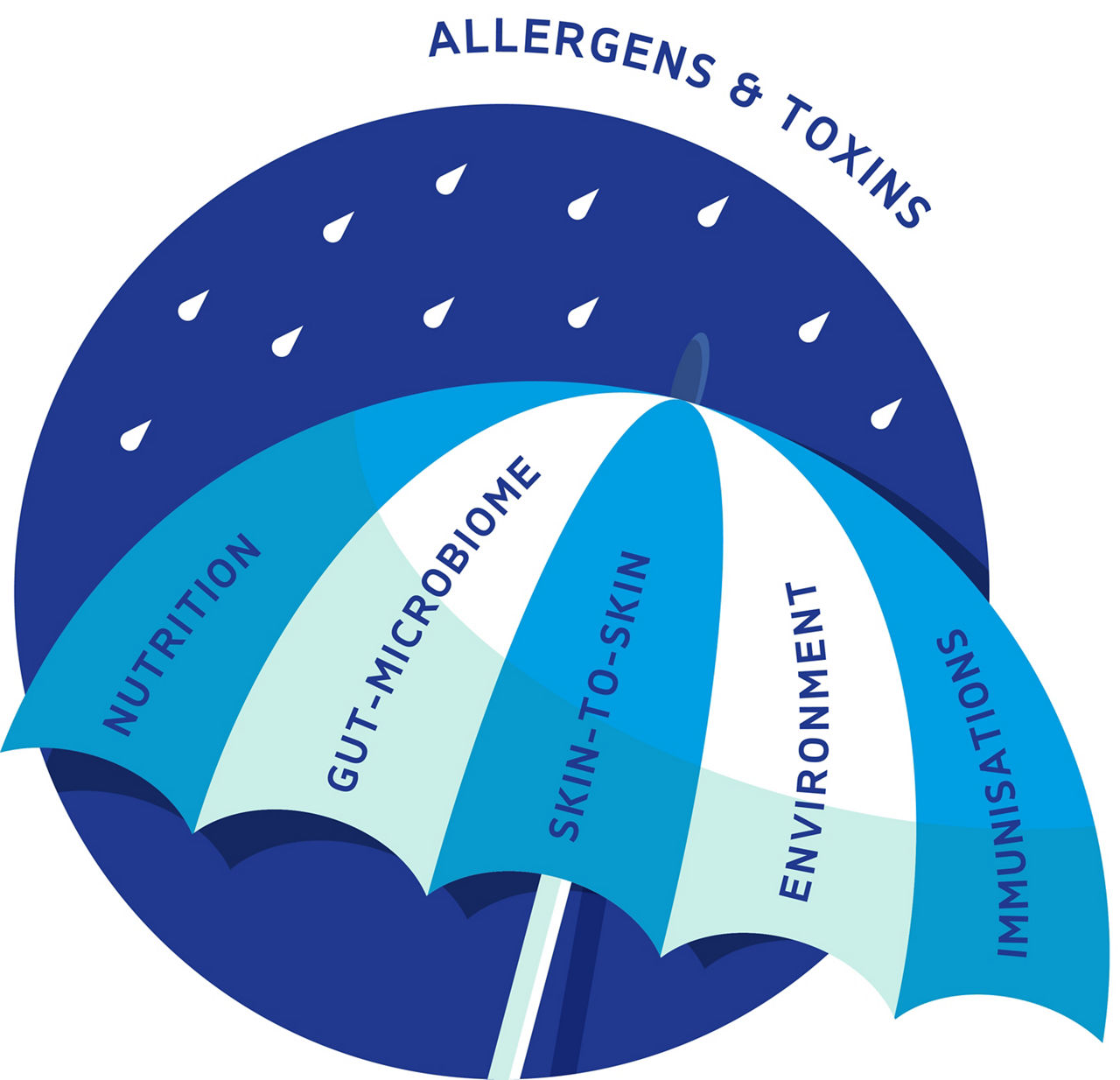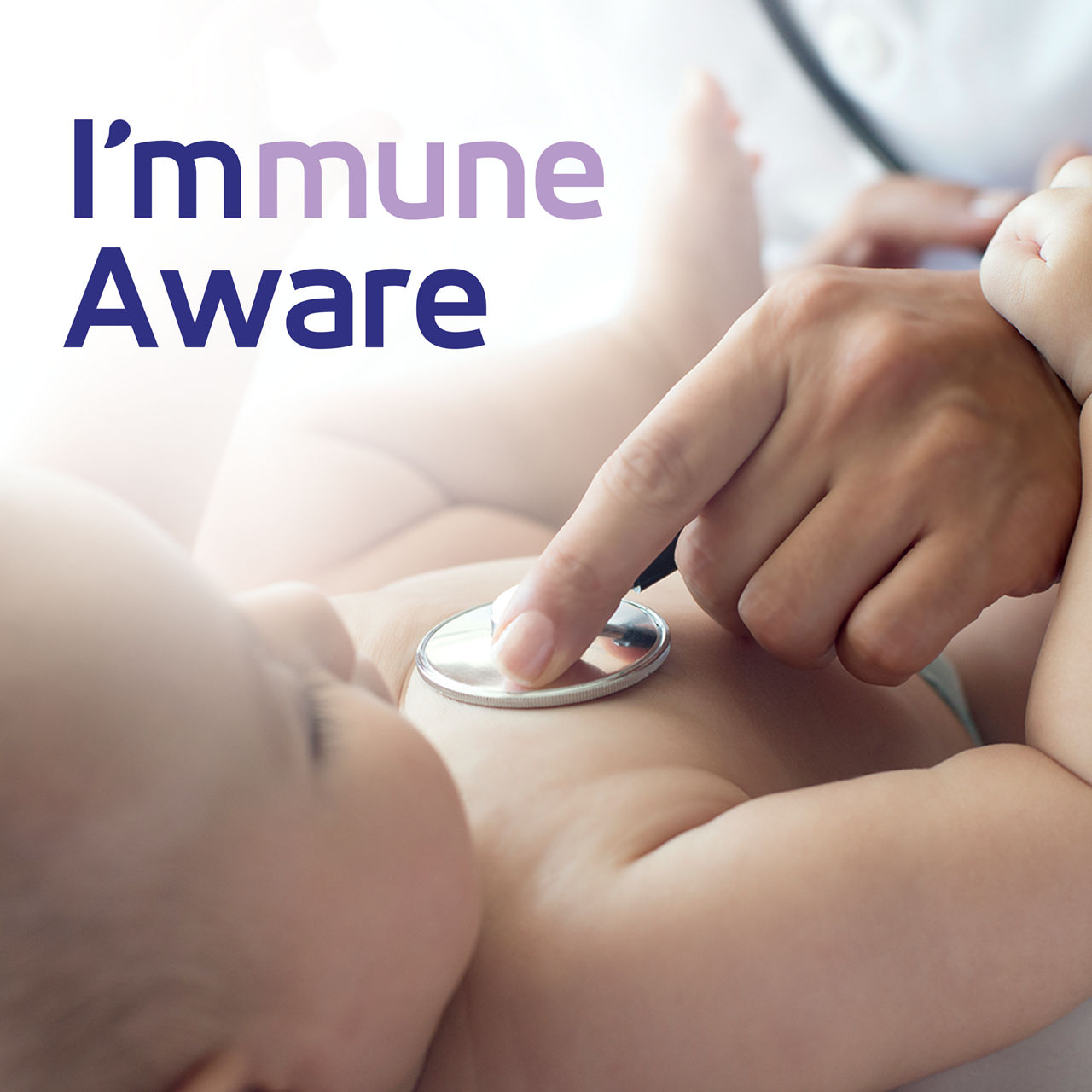
Infant Immunity Community
Welcome to the Infant Immunity Community hub!
An infant’s immune system is immature and must develop rapidly to evolve and adapt to many foreign challenges in the first few years of life1. This hub is dedicated to supporting healthcare professionals to further develop an understanding of immunity, and how to best support immune development in the infants you are caring for.

I'mmune Informed?
Breastfeeding provides gold standard nutrition to babies, is abundant in factors that protect against infectious disease and can influence immune system development3. The below components of breast milk are often associated with the normal development of a healthy immune system4-6.
Prebiotic oligosaccharides that have a direct effect on immune cells4, block the route of infection5 and support brain development6
Omega-6 Arachidonic Acid (AA) and Omega-3 Docosahexaenoic Acid (DHA) shown to moderate inflammatory responses7 and support immune development8
Bioactive compounds produced by beneficial bacteria including short-chain fatty acids, enzymes, peptides and proteins - shown to improve the ability to fight infection by increasing the antibody response to pathogens9 and influencing gut barrier function10
Immunity and the microbiome
70-80% of our immune cells are located in the gut11 and our immune system development is therefore reliant on establishing a balanced microbiome in early life. Amongst other bioactive components and unique factors, the ingestion of prebiotics, probiotics and postbiotics in breastmilk mean that breastfed infants get the best possible start in supporting their immune system development. Breasfed infants are up to five times less prone to developing respiratory tract infections12.
I'mmune resourceful
A selection of immunity-related education materials including podcast episodes, articles and e-learning programmes to support your patients.

Dr Caroline Childs and Nutritionist Katie Angotti present both scientific and more practical advice on managing 'Immunity in the kitchen' on our webinar available on-demand.

Are you aware of the most recent addition to the biotics family? More information on postbiotics and how they influence the immune system can be found here.

Our most listened to episode of 'The Beat' podcast with Midwife host Gill and Professor Glenn Gibson discussing immune development and gut health.

CPD accredited e-Learning on nutrition in the first 1,000 days of life, from conception to toddlerhood for Health Visitors, Midwives and Dietitians.
- Simon AK, Hollander GA, McMichael A. Proc Biol Sci. 2015;282(1821):2014308
- Wagner DN. Allergy Asthma Clin Immunol 2020;16:76
- Jackson KM, Nazar AM. J Am Osteopath Assoc 2006;106(4):203–207
- Eiwegger T, et al. Pediatr Res, 2004;56(4):536-40
- Eiwegger T, et al. Pediatr Allergy Immunol, 2010;21(8):1179-88
- Wang S, et al. Neuroscience and biobehavioral reviews. 2018;95:191-201
- Calder PC. Nutrients 2010;2(3):355–374
- Carlson SE, Colombo J. Adv Pediatr. 2016;63(1):453-471
- Mullié C, Yazourh A, Thibault H et al. Pediatr Res 2004;56:791–795
- Tsilingiri K, Rescigno M. Benef Microbe 2013;4(1):101–107
- West CE et al. J Allergy Clin Immunol. 2015;135:3-13
- Chantry CJ et al. 2006;117(2):425-32
Help us provide information most relevant to you
Please ensure your role and areas of interest are up to date.
